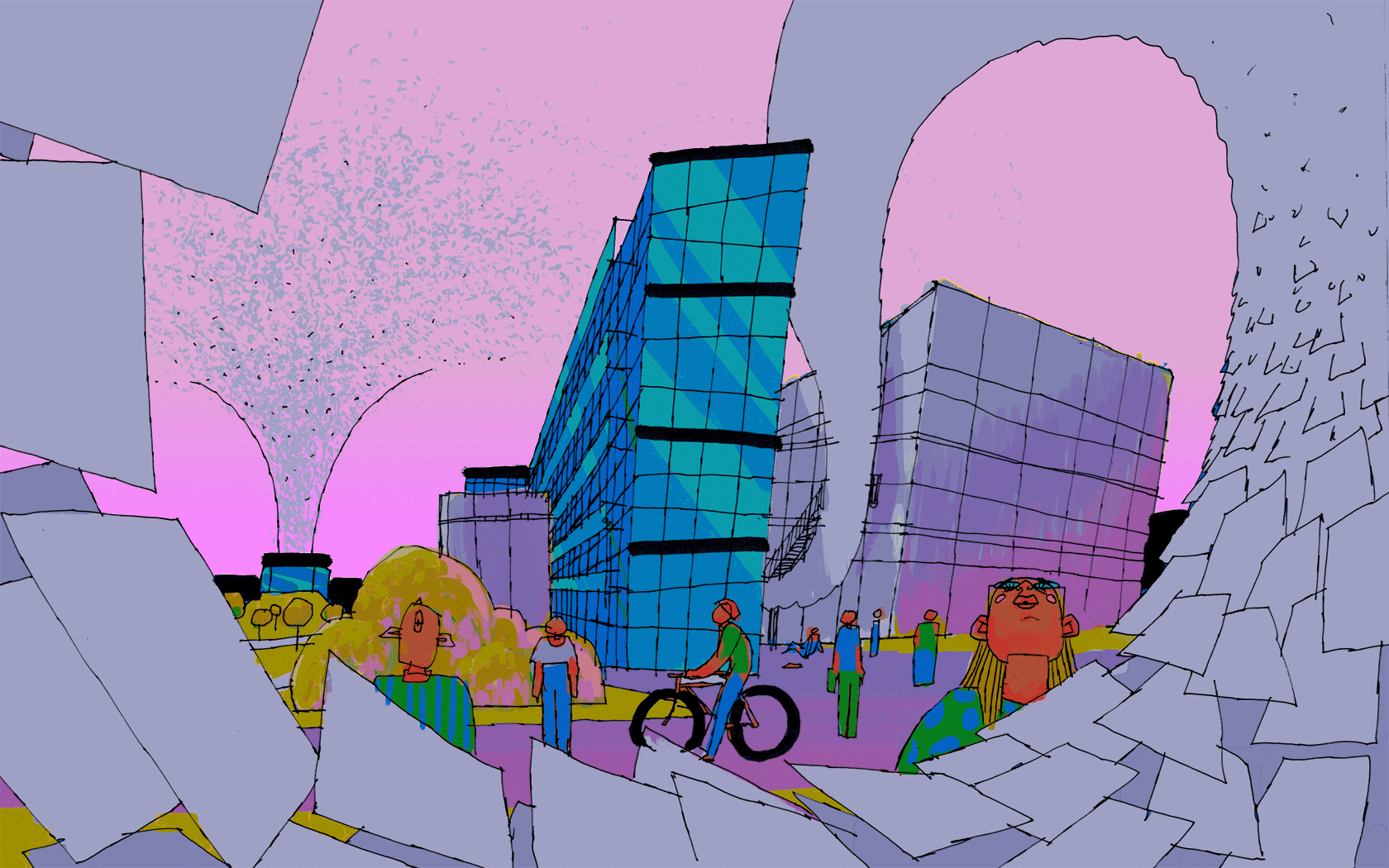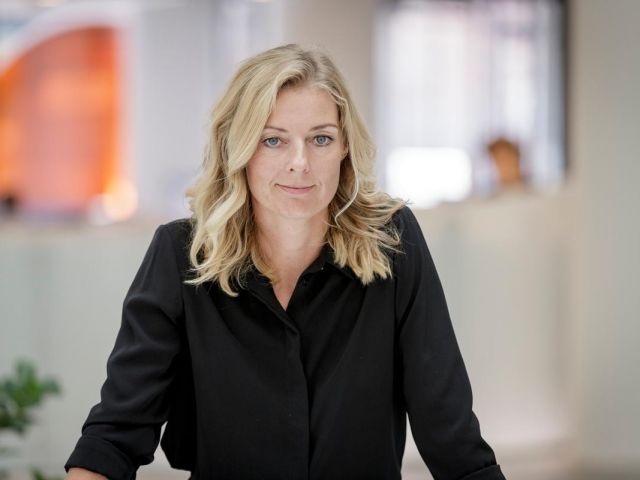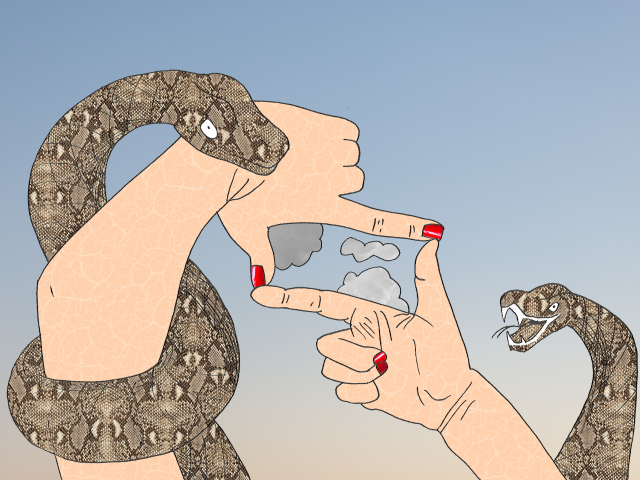Think tank: The publication race has gone over the top and hinders good research communication

CBS can do more to improve its research communication. This includes supporting its researchers in strengthening their communication skills, as well as giving researchers time to focus on third-party communication, argues the Head of Analysis at the Think Tank DEA. She believes an overemphasis on the number of published articles is a barrier to better communication.
Researchers have a range of tasks. Three of their main tasks involve conducting research, teaching and disseminating research. But if you ask the Head of Analysis at the Think Tank DEA, Maria-Theresa Norn, research dissemination is often low on the list of priorities. She thinks the focus on continuously publishing scientific articles may discourage researchers from communicating their valuable knowledge to the public, executives, organizations and other relevant third parties.
“Both the number of published scientific articles and the focus on continuously publishing have substantially increased to the point now where researchers may be deterred from engaging in other valuable activities, such as communicating their research to new or wider audiences,” says Maria-Theresa Norn and continues:
“Engaging with external actors can benefit not just society but also researchers, but it takes time away from research activities that offer a more secure path to scientific publications in high-impact journals. This raises questions about how universities can support and give merit to researchers who invest time in communicating their research to new or broader audiences,” she says.
At DEA, Maria-Theresa Norn works with science and innovation policy, including science communication and researchers’ engagement with external actors.
She acknowledges that researchers have different approaches to communicating their knowledge. Some prefer to write opinion pieces for newspapers and participate in TV and radio programs, while others provide scientific advice on different boards and councils. Whatever the case, third-party communication is important and a valuable supplement to other means of science dissemination, she explains.
“Being able to communicate one’s knowledge through teaching and in scientific papers is really important, but there’s no doubt that communicating beyond that is also important. And everybody doesn’t have to be equally skilled at it, but it’s good to have at least some individuals in every research environment who are great at it and who can act as role models,” she says.
Maintaining a good mix of researchers with different types of skills, including outreach and communication skills, is the responsibility of the management and every head of department.
It’s very difficult to make your research accessible if you don’t know the audience you want to engage with in the first place
Maria-Theresa Norn
“University managers are supposed to support their researchers in communicating with non-academic actors and help them to find ways of achieving this goal that make sense for their particular research. That can result in benefits such as increased visibility among potential collaborators and funders,” she says.
Welcome to the media landscape
Maria-Theresa Norn explains that researchers’ communication skills can be supported and improved in several ways. For example, departments can host communication training sessions for well-established as well as younger faculty members who are interested in communicating their research more effectively.
In her view, researchers may find it relevant to ask themselves whom they want to get involved with, whom they want their research to affect, and what they want to gain from it.
“The point is to become better at explaining what your research contributes. And I know that research seldom contributes complete solutions, but rather small building blocks in complicated processes. However, it’s very difficult to make your research accessible if you don’t know the audience you want to engage with in the first place,” she says.
Some CBS researchers are often in the media, such as Sara Louise Muhr, Jesper Rangvid, Majken Schultz and Edward Ashby. This media exposure can stir up additional interest, which researchers who are new to the spotlight may find overwhelming and difficult to handle.
“When you make yourself visible in a sector, you gain lots of new contacts. Sometimes, this can feel like being hit by a tsunami of interest, which can be hard to navigate. Especially since this can take a lot of time away from other activities, including research, which may lead to short periods of lower research productivity,” she says.

What’s the best way to get research out in society? This is one of the questions that are up for discussion in this series of articles called Science in Society. This is the fourth article in the series. (Illustration: Shutterstock)
However, spending time on establishing lasting and mutually beneficial collaborations and partnerships can provide benefits in the long run anyway. For example, research and teaching may provide access to new ideas, collaborators and funding resources, argues Maria-Theresa Norn.
“Research shows that long-term relationships can be of great advantage to researchers. Not only do researchers gain insights and contacts that increase the dissemination and use of their knowledge, but they can also gain inspiration for research or teaching purposes. Though building these external relationships isn’t easy. It takes researchers’ time, and seeing the short-term benefits may be hard,” she says.
She explains that one way to establish external collaborations and contacts is through platforms and centers. CBS has several centers and platforms focusing on topics such as sustainability, differences and diversity, and digital transformations. They welcome other researchers within these fields, and also engage with external contacts.’
“The large platforms can make it easier to establish long-term collaborations with people driven by the same curiosity and common interests in a specific field,” she says.
Don’t kill the invisible engagement
A DEA survey from 2014 showed that much of the knowledge sharing, research dissemination, collaboration with external contacts, and advising authorities accomplished by the universities often goes unnoticed and is not documented. Maria-Theresa Norn calls this “invisible engagement”.
“If researchers had to document every time they talked to journalists, gave talks at companies or provided informal advice to authorities, this could provide disincentives to engage in the first place and would kill a lot of the research communication already taking place,” she says.
On the other hand, it’s important that individual research departments and researchers reach out rather than just waiting for external contacts to ask them for help, as universities are not always easy to approach from outside. This point was made by the Confederation of Danish Industry in a previous article.
“It’s in our interest that the research supported by public funding is widely disseminated and used. This ultimately increases its value for society as a whole. That’s why it’s so important that we acknowledge that external engagement can be challenging and time-consuming, and encourage and help researchers to find meaningful ways of increasing the impact of their research,” she concludes.



































































































































Comments